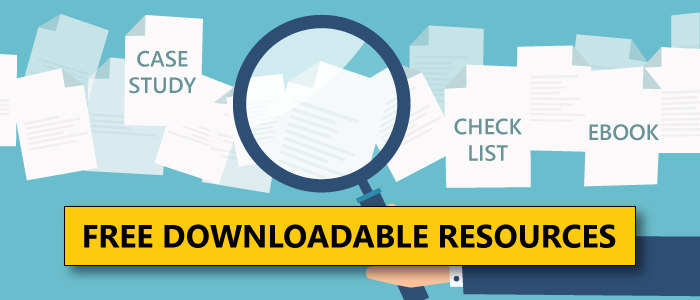
Monthly News Round-Up: March 2022
From leveraging greater efficiencies through the cloud to climate change’s impact on the future of global shipping, March 2022’s headlines were a snapshot of the industry in its current stage of development as it harnesses the promises of future and current technologies while dealing with the new challenges of tomorrow.
What’s New with SAP?
BCG and SAP Launch Sustainability Initiative
Boston Consulting Group and SAP are partnering for a major sustainability initiative aimed at making the process of shifting to more sustainable business models easier than ever before through novel uses of business strategy, new technologies, and an adaptable business model built for the modern era. All of this is geared towards assisting firms with zero carbon/waste and emissions goals but also is helping companies discover and actualize competitive advantages that can be had through sustainable business practices.
Microsoft to RISE with SAP As Part of General Innovation Strategy Push
Microsoft and SAP will work together to power the former’s operations via increased integration with the cloud as well as closer cooperation between existing business relationships between the companies in an effort to hone best practices and strategies.
“Our goal is to simplify and accelerate our own journey to SAP S/4HANA Cloud…Modernizing highly complex, legacy SAP systems is directly relevant to us at Microsoft and to many of our customers. Leveraging the power of the RISE with SAP solution on Azure will give us the flexibility and agility needed to scale quickly, meet the needs of our own business and share that experience with our customers,” said Charlotte Yarkoni, president of commerce and ecosystems at Microsoft.
In addition, SAP will optimize some of its own RISE operations using Microsoft’s Azure framework.
What’s New in Transportation & Freight?
Import Slowdown Offers Chance for Southern California Ports to Work Through Backlog
Southern California ports laboring under an intense backlog have had a reprieve due to a recent slowdown in imports though this situation is not expected to persist into the foreseeable future. While the ports are moving through cargo quite quickly, there is some worry that a resumption of normal levels in the near future could, once again, overwhelm the ports and lead to increased delays and further exacerbation of a problem that was only further highlighted by the COVID-19 pandemic.
XPO to Separate from Truck Brokerage, Divest from Europe, and Maybe Even Sell Intermodal Business
XPO announced a raft of changes coming to its corporate structure, starting with a spin-off of its truck brokerage and then proceeding with a divestiture from the European market. The company is also exploring a sell of its intermodal business although, should current talks fall through or a sell fails to materialize, it will reportedly be part of XPO’s planned spin-off company. Analysts point out that these moves will streamline the company’s structure such that it will be an entirely LTL transportation company.
What’s New in Global Trade & Logistics?
UK and New Zealand Near Completion of Free Trade Agreement
The post-Brexit era is nearly upon the UK economy as Boris Johnson’s government concludes free trade agreement talks with fellow Commonwealth member New Zealand. Currently conducting trade valued annually at 2.3 billion pounds, it is hoped that the agreement will remove barriers to expanded trade as well as hearken a new age of free trade agreements between the UK and other Commonwealth states.
Steel and Aluminum Tariffs from the UK to the US Lowered in Deal Lowering Tariff on Blue Jeans and Whiskey in Exchange
The United States and the United Kingdom agreed to a joint lowering of tariffs between the two countries on strategic products of vital importance to each state’s economy. In exchange for lowering tariffs on British steel, the UK will likewise lower tariffs on whiskey and blue jeans from the United States in 2018 strictures implemented unilaterally by the United States.
Climate Risks Mount for World’s Cargo Ships
Delays and costs related to climate change are expected to increase in the future as shippers’ grapple with sustainability and efficiency in a time of rising concerns about environmental degradation and its impact on the future of the global economy. A new report outlines just a few of the challenges logistics firms face moving forward.

